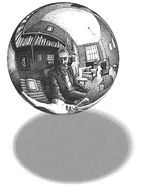How did the Holocaust affect our current view of Germany?

Dear AnswerMan,
How did the holocaust affect the way people look at Germany today?
Abigail

AnswerMan Replies:
Germany is frequently viewed from a perspective that includes images (mental or otherwise) of the Nazis and the Holocaust. One way to demonstrate this is to consider motion pictures that have come out over the past decade. While many films include German characters or themes, most that do focus on the Nazi era or the Holocaust. Of course the Nazi period does represent a part of German history. But there was a valuable and long history before and after this period which lasted only 12 years from the date that Hitler came to power. Today it is not uncommon to even stain historic German figures who did not live during the Nazi period with the Nazi brush. For some, all things German are Nazi or at least suspect. Consider for example Martin Luther and Richard Wagner.
It is important to understand that many Holocaust claims are derived from anti-Nazi propaganda. The result of some of the most extraordinary charges is hatred for Germany and hatred towards the German people. All nations have had their heroes and their villains. It is important however to move past the hateful charges of fantastic crimes that never occurred like the nightmarish claims of using Jewish victims to manufacture bars of soap and lampshades.
These outrageous claims parallel hateful charges which were made against the Jewish people during the Medieval times — that they were responsible for the Black plague, that they killed Christian children and used their blood to make matzoh. The 'blood libel' against Jews had many negative side effects including rising anti-Semitism in lands where such charges were made. Such anti-Semitism often had deadly consequences.
'Blood libels' are dangerous and serious charges and must be debunked for what they are. To allow such charges to proliferate is to accept hate speech in its worst and most dangerous form.
Bibliographic information about this document: n/a
Other contributors to this document: n/a
Editor’s comments: n/a
